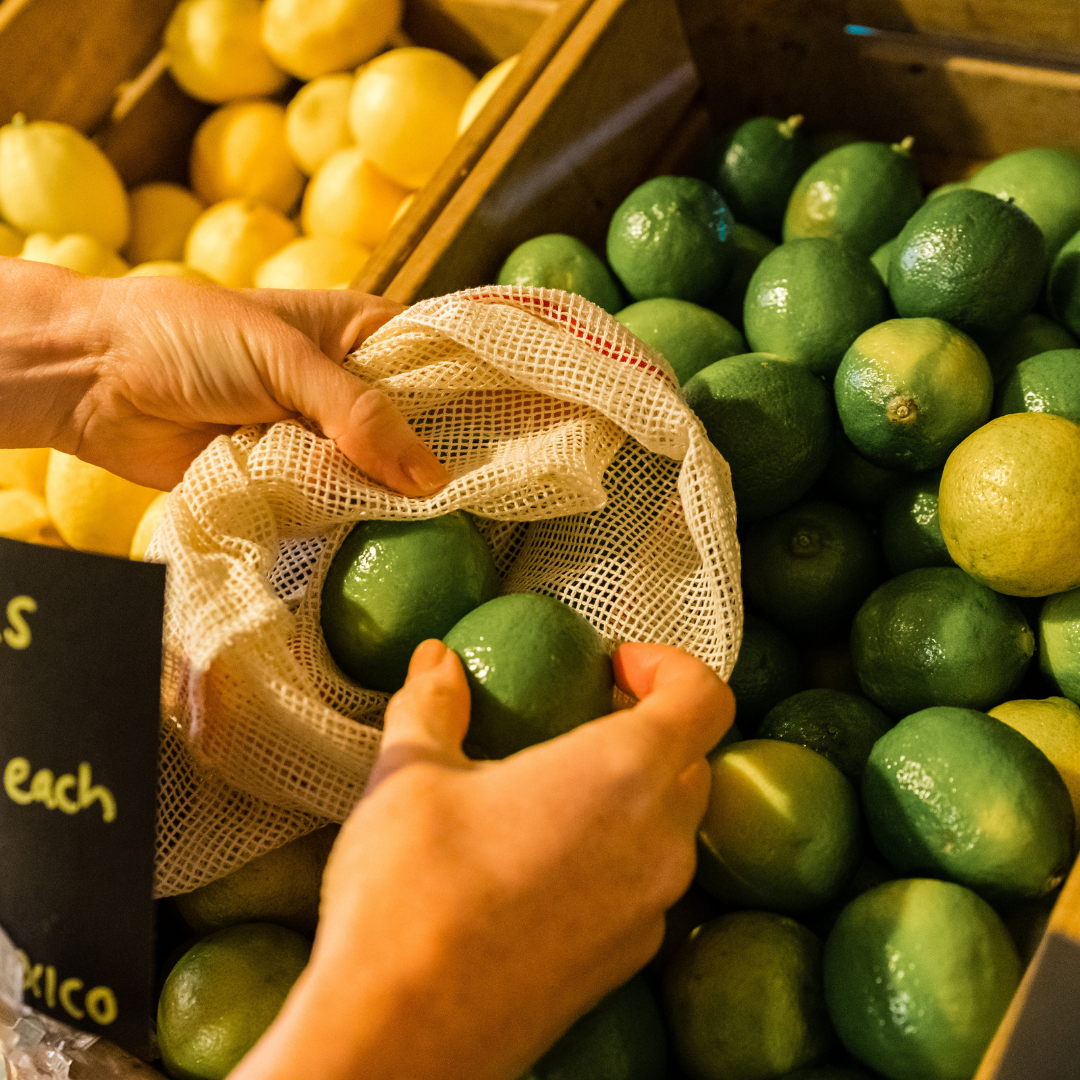
It may seem difficult to find sustainable ways to shop for groceries, considering most common items in shops come packaged and/or wrapped in plastic. However, there are some steps you can take reduce your waste.
Here are our top 5 tips to help:
Start yourself off nice and easy by actually making a list of what you need. Check your fridge, your cupboards and your freezer to find out what it is you actually need. You can make yourself a weekly or monthly food plan, whichever is easier. Open up a note page on your phone or take a scrap bit of paper and note down your basic essentials such as bread, milk, eggs and pasta. Then figure out what recipes you will do week by week and get the necessities for it.
Don't forget your reusable shopping bags. It can be hard to remember our reusable grocery bags, but not only will it save money it will save on plastic waste! Try leaving them by your front or backdoor or even leave them in your car or bag so they are already with you. Reusable grocery bags can also help you to stop buying fresh produce that is packaged in plastic wrapping, go for the loose produce! Try our Organic Cotton Produce Bags or our Reusable Silicone Food storage bags.
When shopping for your food items, try looking for the alternatives that aren't packaged in plastic. Keep an eye out for paper or cardboard packaging for common items such as milk and eggs. Although this may not seem like an easy option for meat, there are some reduced plastic or biodegradable options available.
Another tip to reduce your grocery waste is to compost. Composting recycles your food waste, which can help improve your soil health, reduce greenhouse gas emissions, mitigate drought impact and recycle nutrients. There are many everyday items that are good for composting such as, coffee grounds, eggshells, vegetables and bread. Though some dairy products and meats are technically compostable, they are not good for garden composting because of the pests they attract.
Buy local products and buy what is in season. When you buy local, you are buying products that were not shipped in from some remote part of the world. If you’re spending money to buy products that are out of season and grown in other parts of the world, you are encouraging products to be shipped over long distances. If you buy products that were made or harvested locally, they have lower carbon footprint.




